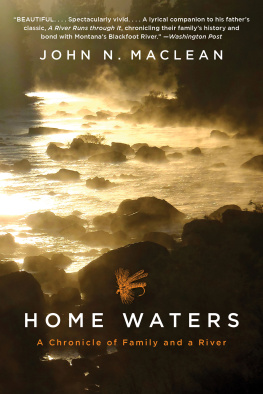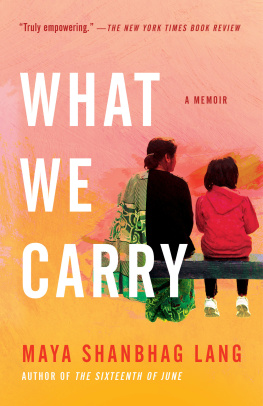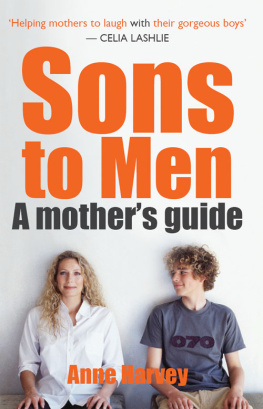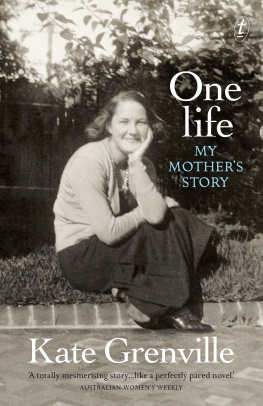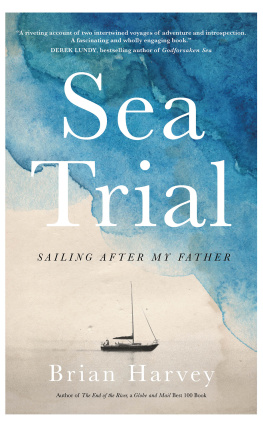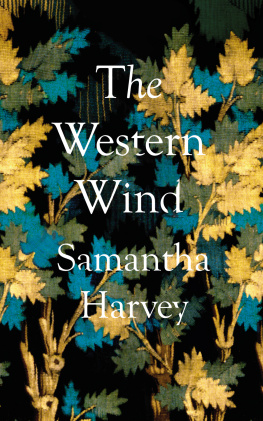Lorna Goodison is a poet, author of eight books of poetry and two collections of short stories. Her work has been widely translated and anthologized. In 1999 she received Jamaicas Musgrave Gold Medal. Born in Jamaica, Goodison now teaches at the University of Michigan. She divides her time between Ann Arbor and Toronto.
First published in Canada in 2007 as From Harvey River:
A Memoir of My Mother and Her People by McClelland & Stewart, Ltd, Toronto, Ontario.
First published in hardback in Great Britain in 2009 by Atlantic Books, an imprint of Grove Atlantic Ltd.
This paperback edition published in 2010 by Atlantic Books.
Copyright Lorna Goodison, 2007
The moral right of Lorna Goodison to be identified as the author of this work has been asserted by her in accordance with the Copyright, Designs and Patents Act of 1988.
All rights reserved. No part of this publication may be reproduced, stored in a retrieval system or transmitted in any form or by any means, electronic, mechanical, photocopying, recording or otherwise, without the prior permission of both the copyright owner and the above publisher of this book.
Every effort has been made to trace or contact all copyright-holders.
The publishers will be pleased to make good any omissions or rectify any mistakes brought to their attention at the earliest opportunity.
Atlantic Books
An imprint of Grove Atlantic Ltd
Ormond House
2627 Boswell Street
London WC1N 3JZ
www.atlantic-books.co.uk
First eBook Edition: January 2010
ISBN: 978-1-843-54996-3
Contents
To Doris and Marcus
T hroughout her life my mother lived in two places at : Kingston, Jamaica, where she raised a family of nine children, and Harvey River, in the parish of Hanover, where she was born and grew up. Harvey River had been settled by her grandfather William Harvey, who gave his name to the river, and the river in turn gave its name to the village. I do not think that there was ever a day in my childhood when the river or the village was not mentioned in our house. Over the years Harvey River came to function as an enchanted place in my imagination, an Eden from which we fell to the city of Kingston. But over time I have come to see that my parents story is really a story about rising up to a new life. As a child I constantly asked my mother about her life before, as she put it, things changed. I listened carefully to her stories, and repeated them to myself. I also took to asking urgent questions of my father. I have an image of me standing outside the bathroom door calling in to him over the noise of the shower, So what was your mothers name, and what was her mothers name? But my fathers people do not live long, and he died when I was fifteen years old. So I never did get to ask him all my questions. After my mother Doriss death nearly thirty-five years later, I began to dream her, as Jamaicans say, and in those dreams I continued to ask her questions about her life before and after she came to Kingston. And then there was this one very vivid visitation when I dreamt that I went to see her in her new residence, a really palatial and splendid sewing room with high stained-glass windows, where she was now in charge of sewing gorgeous garments for top-ranking angels. She said they were paying her a lot for her sewing in this place, and that all her friends came to talk angelic big-woman business with her there as she sewed. She said she could not tell me more as she did not want me to stay with her too long, because the living should not mix-up too much with the dead. But as I was leaving the celestial workroom, she handed me a book. This is that book.
T he baby was plump and pretty as a ripe ox-heart tomato. Her mother, Margaret Wilson Harvey, gently squeezed the soft cheeks to open the tiny mouth and rubbed her little finger, which had been dipped in sugar, back and forth, over and under the small tongue to anoint the child with the gift of sweet speech. Her name is Doris, she said to her husband, David.
In later years, my mother preferred to spell her name Dorice, although in actual fact she was christened Doris. But she was registered under a different name altogether Clarabelle. This came about because of a disagreement between her parents as to what they should call their seventh child. Her father, David, was a romantic and a dreamer, a man who loved music and books, and an avid reader of lesser known nineteenth-century authors. He had read a story in which the heroine was called Clarabelle, and he found it to be a lovely and fitting name. He told his wife, Margaret, that that was to be the baby girls name. Well, Margaret had her heart set on Doris, because it was the name of a school friend of hers, a real person, not some made-up somebody who lived in a book. Doris Louise, that was what the child would be called. They argued over it and after a while it became clear that Margaret was not going to let David best her this time. He had given their other children names like Cleodine, Albertha, Edmund, and Flavius. Lofty-sounding names which were rapidly hacked down to size by the blunt tongues of Hanover people. Cleo, Berta, Eddie, and Flavy. That was what remained of those names when Hanover people were finished with them. Margaret had managed to name her first-born son Howard, and her father had named Rose. Simple names for real people.
There was nobody who could be as stubborn and hard-headed as Margaret when she set her mind to something. She was determined that her baby was not going to be called Clarabelle. Sound like a blasted cow name, she said. David gave up arguing with his wife about the business of naming the pretty-faced, chubby little girl, especially after Margaret reminded him graphically of who exactly had endured the necessary hard and bloody labour to bring the child into the world. He dutifully accompanied her to church and christened the baby Doris, on the last Sunday in June 1910. Then the next day he rode into the town of Lucea and registered the child as Clarabelle Louise Harvey, and he never told anyone about this deed for fifteen years. As a matter of fact, he is not known to have ever told anyone about it, because the family only found this out when my mother tried to sit for her first Jamaica Local Exams, for which she needed her birth certificate. When she went to the Registrar of Births and Deaths, they told her that there was no Doris Louise Harvey on record, but that there was a Clarabelle Louise Harvey born to David and Margaret Harvey, ne Wilson, of Harvey River, Hanover. She burst into tears when she heard what her legal name was. Clarabelle go to hell her brothers chanted when the terrible truth was revealed. Not one to take teasing lightly, she told them to go to hell their damn selves.
Eventually her name was converted by deed poll to Doris. Thereafter, she signed her name Dorice, as if to distance herself from the whole Clarabelle/Doris business. Besides, Dorice, pronounced Do-reese, conjured up images of a woman who was not ordinary; and to be ordinary, according to my mothers oldest sister, Cleodine, was just about the worst thing that a member of the Harvey family could be.

Cleodine was definitely not ordinary. She held the distinction of being the first child to be born alive to her parents, David and Margaret Harvey. She emerged into the world on January 6, 1896, as a tall, slender baby with a curious yellowish-alabaster complexion. The child Cleodine immediately opened her mouth and bellowed so loudly that the midwife nearly dropped her. Before her, not one of the five children conceived by Margaret had emerged from her body alive. Every one had turned back, manifesting themselves only as wrenching cramps, clotted blood, and deep disappointment.



